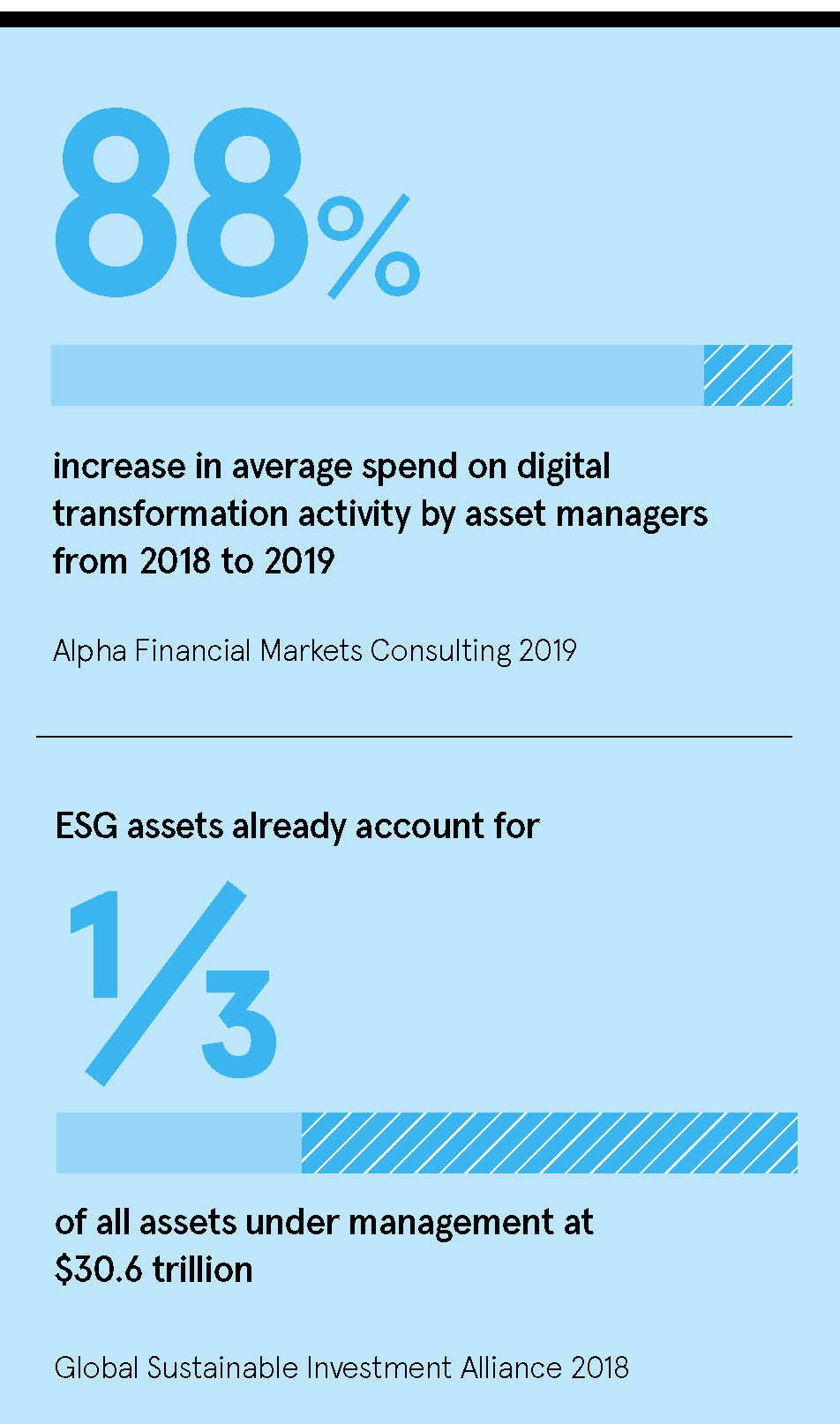Past focus in wealth management has been on investment performance and tactile client service. Regulation was relatively light and the need for transparency at best limited.
In the last decade, however, regulation has become heavier, with the introduction of regimes such as the Retail Distribution Review and revised markets in financial instruments directive, or MiFID II, which have required wealth managers to become more transparent.
Concurrently, more sophisticated and financially savvy clients are demanding greater value for money. While ten years ago there was limited sensitivity to cost, clients are now actively looking for lower charges. They have more options, for example exchange-traded funds, passive funds, and access to robo-advisory services and DIY investment platforms.
Also wealth management is no longer about investment performance at all costs. Social and environmental consciousness is becoming increasingly important. It is now about making sure investment performance comes from the right place, both in the target investments and the way wealth managers conduct themselves. Environmental, social and governance concerns are no longer a fad, but an underlying shift that wealth managers must consider within their core strategies.

Increased data volumes, economies of storage and current-day computing power are game-changers for wealth management. While they support superior analysis, the ubiquity of much of the data makes it a commodity. To win, wealth managers must put this data to maximum use.
They need to knit data strategies into the fabric of the organisation, then harness it efficiently to provide deeper and competitive insights. Artificial intelligence and machine-learning are also revolutionising wealth management and it is only a matter of time before FANGs (Facebook, Amazon, Netflix and Google) turn their data and technological firepower towards investment management.
Cloud computing, however, comes with a health warning. While it enables management and crunching of gigabytes economically, the data requires rigorous cybersecurity beyond anything currently in place. Ongoing investment and management focuses on securing the company’s data, not only for General Data Protection Regulation, but to avoid the devastating reputational damage that could result from a breach; beware.
Digital transformation has been happening for many years, but it is accelerating. Chief executives and other senior C-suite executives in wealth management firms must understand how to harness the next generation of technology for their strategic plans and not simply leave this to their chief technology officer. They must plan their digital transformation and put it front and centre. They should not do this incrementally, but run it alongside legacy systems while deprecating the latter rapidly.
Increased data volumes, economies of storage and current day computing power are game changers for wealth management
Data has become the lifeblood of wealth management. To drive insight, companies should integrate investment data with new strategies involving the broadest set of client data. This involves sourcing and managing data in a way beyond anything done before. The conundrum will be whether to manage this corporate asset in-house or outsource to a specialist.
Consider smart co-operation to leverage innovations swiftly. Working with experts will make innovation and potential new avenues more accessible, both in terms of time and effort. These partnerships provide the opportunity to gain competitive advantage beyond the level of investment affordable.
Wealth managers now, more than ever, need to be customer centric. The demographics of the client base have shifted. Clients are younger, self-made, culturally diverse and more informed. They have different expectations. Wealth managers will need to base divergent client-servicing strategies on insights from data and technology to provide a highly customised service from a single operating model.
Wealth management will remain fundamentally focused on people, their emotions and trust. Firms must be competitive against disruption, yet remain profitable while investing in innovation. Success will not just be about what you do, but how you do it.
With relationships with over 700 asset managers, FundsLibrary can support wealth managers with their data management needs. We provide consistent and timely data for fund selection and analysis for multi-manager funds, and can leverage this data to deliver on-demand, dynamic, interactive factsheets, research centres and analytical tools for wealth portals.

